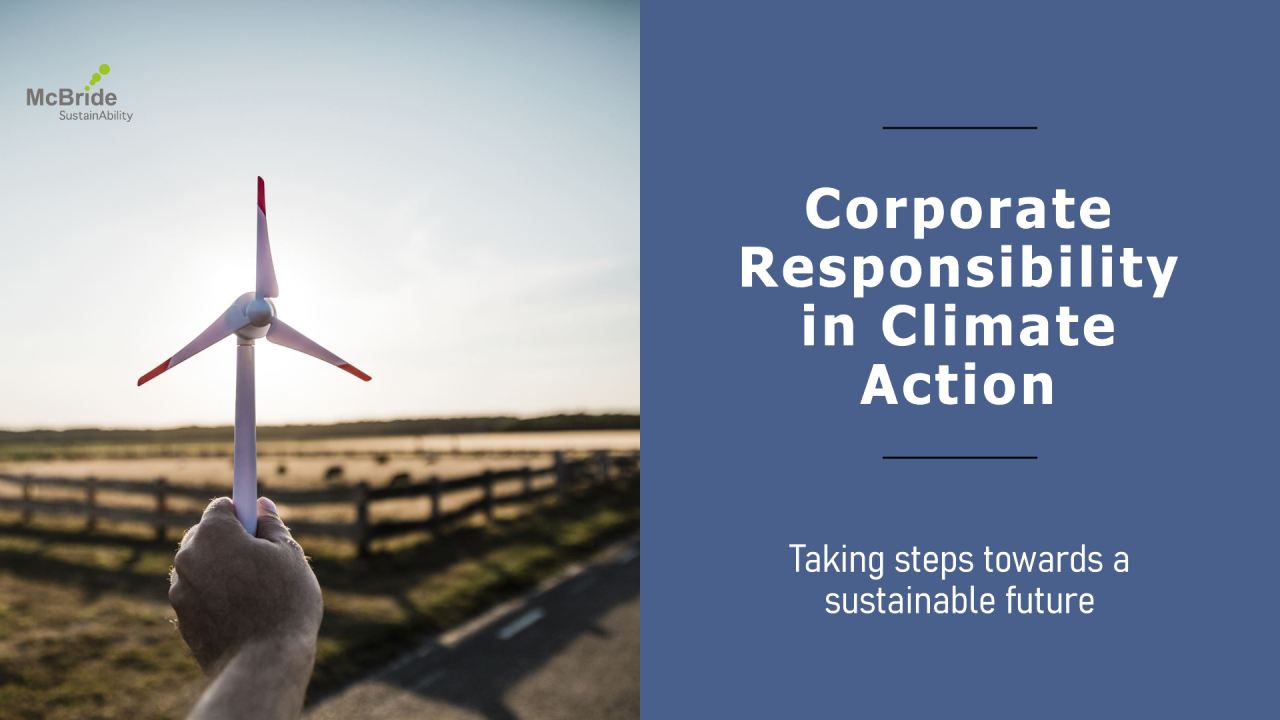As the world grapples with the escalating climate crisis, corporations are emerging as pivotal players in the battle against climate change. Beyond regulatory compliance and public relations, many businesses are embracing sustainability as a core component of their operations. Here’s how companies are stepping up to make a meaningful impact.
1. Setting Ambitious Net-Zero Targets
Leading corporations are committing to net-zero emissions, aiming to balance the amount of greenhouse gases emitted with an equivalent amount removed from the atmosphere. For instance, Microsoft has pledged to become carbon negative by 2030, investing significantly in carbon reduction and removal technologies. Similarly, Amazon aims to achieve net-zero carbon emissions by 2040, with a target to power its infrastructure with 100% renewable energy by 2025.
2. Investing in Renewable Energy

Corporations are increasingly investing in renewable energy sources to power their operations. Google, for example, has entered into a geothermal energy purchase agreement in Taiwan, aiming to add 10 megawatts of carbon-free energy to the grid by 2029. This initiative aligns with Google’s goal to use only carbon-free energy by 2030.
3. Innovating Sustainable Products and Services
Businesses are developing products and services that promote sustainability. Unilever, a consumer goods giant, has set a target to achieve net-zero emissions from all its products by 2039. The company is also working to improve the livelihoods of people in its supply chain, demonstrating that sustainability and social responsibility can go hand in hand.
4. Advocating for Climate Policy
Corporations are increasingly engaging in climate advocacy, urging governments to implement policies that support environmental sustainability. Over the past decade, businesses have transitioned from being part of the problem to becoming key players in addressing climate change. Companies like Alphabet, Apple, and Amazon have led renewable energy commitments, while European firms like IKEA and Unilever have influenced the European Green Deal.
5. Collaborating with NGOs and Communities
Partnerships between businesses and non-governmental organizations (NGOs) can be effective in tackling climate change. For example, Patagonia collaborates with the environmental organization 1% for the Planet, donating 1% of its sales to environmental causes. Such collaborations help fund numerous environmental projects and enhance the company’s reputation as a sustainable and socially responsible entity.
6. Enhancing Transparency and Accountability
Transparency in environmental impact is crucial for building trust with consumers and stakeholders. The Science Based Targets initiative (SBTi) has been instrumental in helping companies set emission reduction targets in line with climate science and the Paris Agreement goals. As of 2025, over 10,000 companies have set or committed to set science-based climate targets validated by SBTi.
7. Integrating Sustainability into Corporate Culture

Sustainability is increasingly becoming a core value within corporate cultures. Companies are embedding environmental goals into their business strategies and operations. For instance, Flipkart, an e-commerce major, has committed to transitioning to a 100% electric vehicle fleet by 2030. Additionally, companies like Genpact are requiring their suppliers to undergo third-party audits on sustainability parameters annually.
Conclusion
Corporations play a vital role in combating climate change by setting ambitious targets, investing in renewable energy, innovating sustainable products, advocating for climate policies, collaborating with NGOs, enhancing transparency, and integrating sustainability into their cultures. As businesses continue to lead by example, they not only contribute to environmental preservation but also inspire others to take meaningful action. The collective efforts of the corporate sector are essential in building a sustainable future for all.
Urban farming is not confined to a single region; its influence is global. Cities worldwide are adopting urban agriculture to address local challenges. For instance, in Glasgow, the startup STAX is converting abandoned buildings into insect farms, producing sustainable, protein-rich animal feed pellets. This innovative approach not only revitalizes unused spaces but also contributes to a circular food system, reducing reliance on traditional feed sources like soy and fish meal.
Similarly, in Atlanta, over 150 urban gardens and approximately 50 produce farms have been established. These initiatives combat food deserts by providing fresh produce to local communities and restaurants, while also offering education on urban agriculture. Projects like the Urban Food Forest at Browns Mill and the South West Atlanta Growers Cooperative highlight the city’s commitment to sustainable and accessible food systems.
https://gulfmagazine.co/discover-qatar-t,.he-hidden-travel-gems/.



